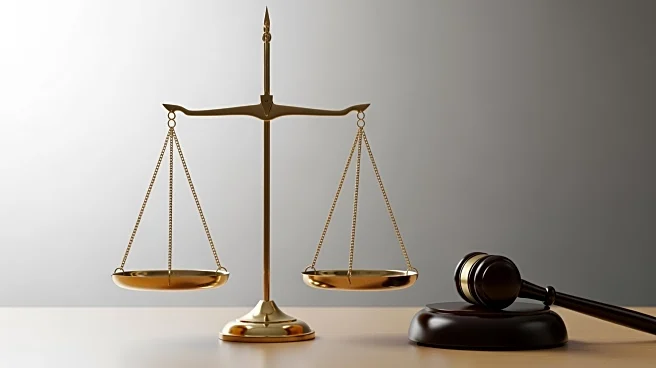What's Happening?
President Trump has announced that the United States will be involved in the trial of Israeli Prime Minister Benjamin Netanyahu, which he described as 'very unfair.' Trump made this statement during a recent address at the Knesset, following a U.S.-brokered
prisoner-hostage swap and ceasefire deal between Israel and Hamas. The trial, which has been a significant political event in Israel, involves charges of corruption against Netanyahu. Trump's promise of U.S. involvement suggests a potential diplomatic intervention aimed at supporting Netanyahu, reflecting the close ties between the two leaders.
Why It's Important?
The involvement of the U.S. in Netanyahu's trial could have significant diplomatic implications, affecting U.S.-Israel relations and regional politics. Trump's support for Netanyahu may strengthen bilateral ties but could also provoke criticism from those who view the trial as a matter of Israeli domestic affairs. This move might influence public opinion in both countries, impacting political dynamics and future diplomatic negotiations. The trial's outcome could affect Netanyahu's political career and Israel's governance, with potential repercussions for U.S. foreign policy in the Middle East.
What's Next?
The U.S. involvement in Netanyahu's trial may lead to diplomatic discussions and negotiations between American and Israeli officials. It could also prompt reactions from other international stakeholders, including countries critical of Netanyahu's policies. The trial's proceedings and any U.S. actions will be closely monitored by political analysts and media, potentially influencing future diplomatic strategies and alliances. The situation may also affect upcoming elections in Israel, as public perception of Netanyahu's leadership and U.S. support could sway voter opinions.
Beyond the Headlines
The ethical implications of U.S. involvement in a foreign leader's trial raise questions about sovereignty and international law. It highlights the complexities of diplomatic relations where political interests intersect with legal proceedings. Long-term, this involvement could set precedents for how the U.S. engages with legal matters involving allied nations, influencing global perceptions of American foreign policy and its role in international justice.
















